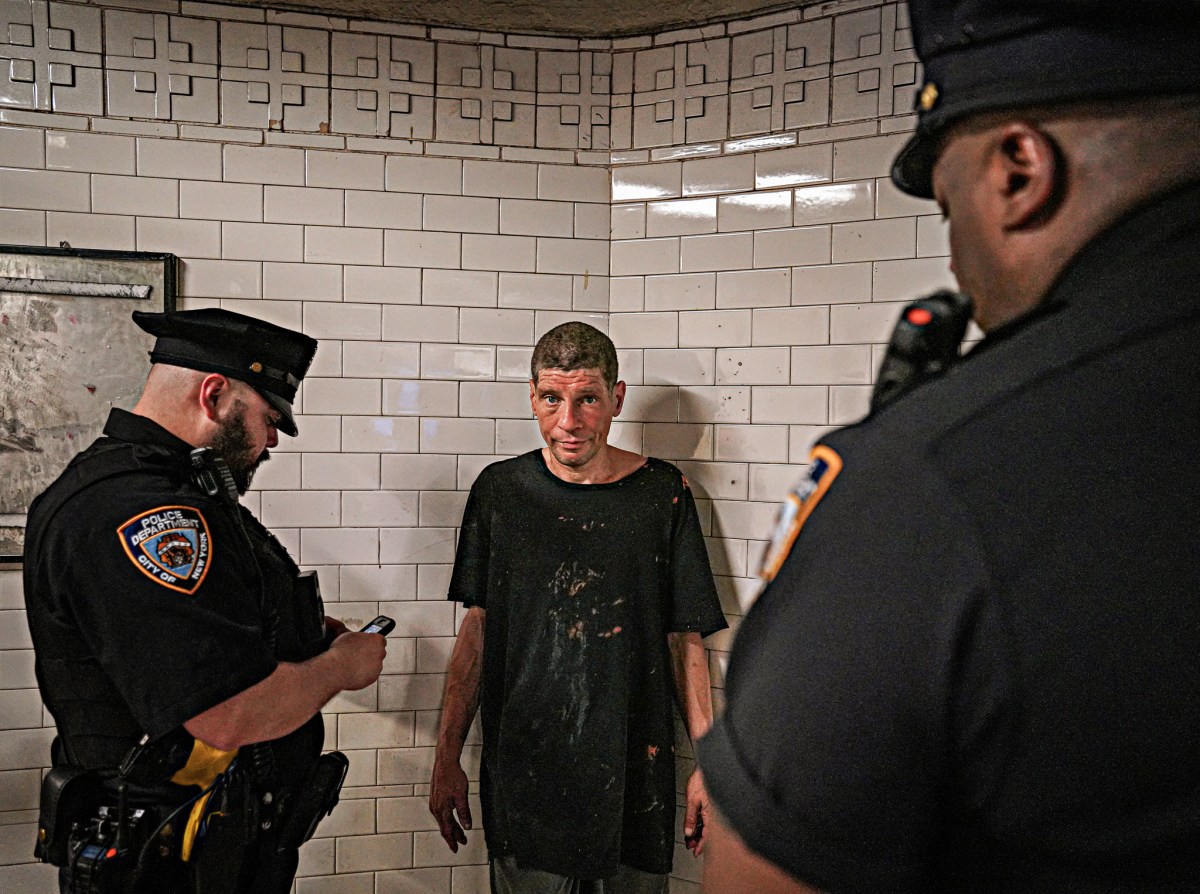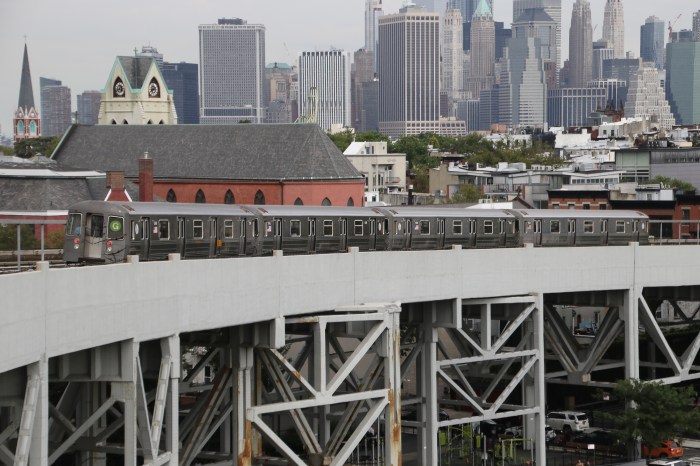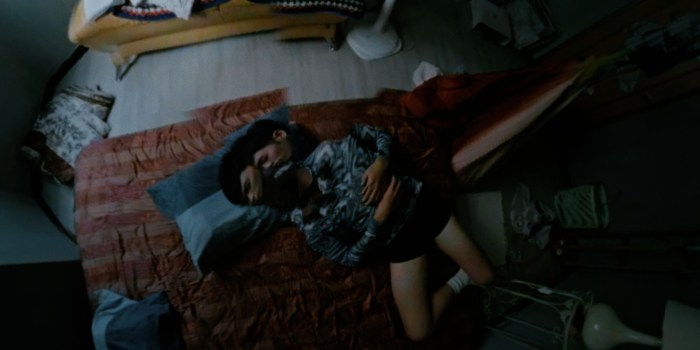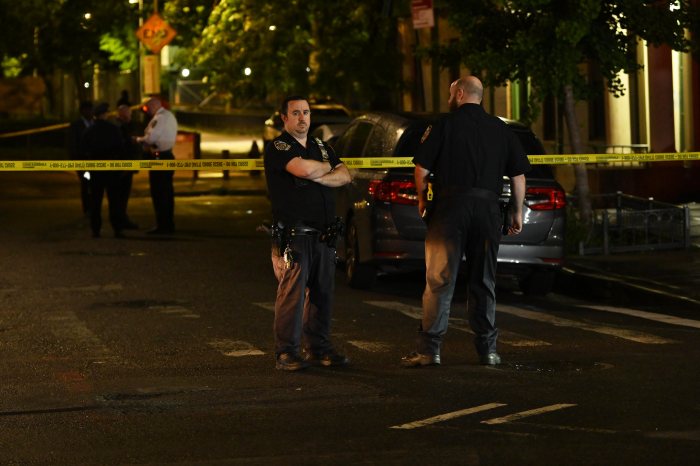Police in Park Slope lead the city in issuing tickets for a law that does not exist.
Officers in the 78th Precinct wrote 151 tickets to cyclists for cellphone use in 2014, according to data released in response to a Freedom of Information request by The Brooklyn Paper, despite the fact that New York State’s text-ban law only applies to motor vehicles. Citing cyclists for an unsafe practice that is nonetheless legal puts an unfair and unlawful burden on them, according to a pro-bike lawyer.
“It means that hundreds of people are paying money they can ill afford,” said Steve Vaccaro, a lawyer who frequently litigates on behalf of cyclists. “Many people bike because it costs less than a MetroCard or a car, and here they are getting hit with summonses when they’re not even breaking the law.”
Representatives of the New York Police Department legal bureau did not respond to multiple requests for comment, but a spokeswoman testified at a recent Council hearing that New York’s texting ban technically applies to cyclists.
The language states otherwise: it specifically bans texting by operators of “motor vehicles,” which according to the term-definition section of the overarching motor vehicle statute does not include human-powered vehicles like bicycles.
Nowhere is that distinction more relevant than Park Slope, home to a large density of cyclists and also the precinct in which bikers are most likely to get slapped with a summons for checking their phone while on the move.
The 78th Precinct, which covers Park Slope, Prospect Park, and parts of Prospect Heights and Gowanus, blew its neighbors out of the water in mis-enforcement. The 76th Precinct, which covers Red Hook, wrote one such ticket in 2014, while Fort Greene and Bedford-Stuyvesant’s 88th Precinct and Sunset Park’s 72nd Precinct wrote none. The distant runner up in the area is the 84th Precinct, in Brooklyn Heights and Downtown, which issued 15 tickets to bikers for cellphone use in 2014.
The high numbers in Park Slope are most likely the result of a combination of the precinct’s strong support of the mayor’s Vision Zero plan to reduce pedestrian deaths, an initiative that was a cornerstone of the policy of Commanding Officer Michael Ameri and continued by his replacement Captain Frank DiGiacomo. DiGiacomo declined to comment on the legality of texting while biking, but he affirmed his commitment to keeping the roads of Park Slope safe for pedestrians and cyclists alike.
“We like bikes, and we want to keep them here, but we want people to be safe,” he said.
Safety activists in the neighborhood have worked closely with police on Vision Zero initiatives, but have been less than pleased when the focus falls on bikes. One Community Board 6 member and enthusiastic cyclist praised DiGiacomo for his focus on road safety, but questioned if bikes warrant the same amount of concern as reckless drivers.
“The difference between a driver on a cellphone and a biker on a cellphone is a significantly different magnitude,” said Eric McClure, a Park Slope cyclist and Community Board 6 member. “I have a lot of respect for the 78th Precinct, and they do a great job of keeping people safe, but I’d prefer to see them prioritize the behaviors that are most dangerous to a greater number of people.”
Cops citywide cited cyclists 427 times in 2014 for cellphone use, a number that may result from a combination of scant legal training and a misconception that the texting-ban law applies to cyclists, Vaccaro said.
“Police are not trained in motor vehicle law, and there is an unwarranted assumption that traffic laws are so simple that why waste time training about them,” he said. “How much time would it take for the sergeant to get up at morning roll call and say ‘hey guys, there’s an exception when it comes to cyclists’?”
While police continue to ticket cyclists for cellphone use with shaky legal backing, Councilman Mark Treyger (D–Coney Island) has been pushing to end the legal limbo with a law that would specifically ban texting while biking. Treyger introduced the legislation last year after he said he saw a biker almost cream a pedestrian while gazing at his screen, and he defended the bill against critics in a recent Council session.
The bill has met with howls of protest from bike activists, who want police to focus their safety initiatives on motorists, or on the very least increase ticketing of already-outlawed dangerous practices like riding the wrong way. Both Vaccaro and McClure acknowledged that texting while biking is a boneheaded move, but the lawyer said legislators need to consider the potential a behavior has to harm people other than the risk-taker himself.
“I know of no incidents of this causing serious injury or death,” Vaccaro said. “Legislation has to be data-driven.”
If you have been ticketed for using your cellphone while riding a bike, did you pay it? Did you fight it? Let us know what happened by contacting Noah Hurowitz at the e-mail below.















